Description
RSE4801 Assignment 03 Memo {2 Essays Provided} : Title – In 3000 – 3500 words, compare and contrast the ontological and epistemological assumptions that inform and shape the research paradigms listed below. Thereafter, explain which, amongst them, makes the strongest contribution to education and why: Positivism , Interpretivism , Critical theory , Postmodernism , Critical realism, Decoloniality
(2 ESSAYS PROVIDED )
Introduction
In the realm of educational research, the selection of a research paradigm is a fundamental step that shapes every aspect of inquiry—from the formulation of research questions to the interpretation of findings and the recommendations that follow. A research paradigm can be understood as a philosophical framework that encapsulates a particular worldview, outlining specific beliefs about what reality is (ontology) and how we come to know it (epistemology). These underlying assumptions influence not only the methods researchers choose but also the way knowledge is conceptualised, validated, and applied within educational settings.
The diversity of educational experiences, contexts, and social structures demands an equally diverse set of research paradigms capable of capturing the complexity of teaching and learning processes. In this light, six prominent paradigms—positivism, interpretivism, critical theory, postmodernism, critical realism, and decoloniality—
have emerged as influential frameworks that continue to shape the landscape of educational research. Each paradigm offers a distinct lens through which to understand reality and knowledge: from the objectivity and measurement focus of positivism to the socially constructed meanings emphasized by interpretivism; from the transformative goals of critical theory to the sceptical and pluralistic outlook of postmodernism; from the layered and causally driven reality of critical realism to the emancipatory and anti-colonial stance of decoloniality.
Understanding the ontological and epistemological assumptions that underlie each paradigm is not merely a theoretical exercise—it has profound implications for educational practice. The paradigm a researcher adopts influences not only what is studied and how it is studied, but also whose voices are heard, whose knowledge is legitimised, and what kind of educational change is deemed possible. For instance, whereas positivism seeks generalisable truths through objective detachment, decoloniality demands engagement with lived experience, historical injustice, and the reconstitution of indigenous knowledges.
In a global context where education is increasingly called upon to address social inequality, cultural diversity, epistemic injustice, and digital disruption, the paradigmatic choices made by researchers carry ethical and political weight. Thus, the need to critically compare these paradigms is both a scholarly and a practical imperative.
This assignment will therefore provide a detailed comparative analysis of the ontological and epistemological foundations of the six paradigms listed above. By unpacking their assumptions, this essay will highlight how each paradigm frames the nature of reality and the means of acquiring knowledge. The analysis will then culminate in a reasoned argument for which paradigm offers the most compelling and transformative contribution to educational research and practice, particularly in the context of a diverse and postcolonial society such as South Africa.
(2 ESSAYS PROVIDED )
Introduction
In the realm of educational research, the selection of a research paradigm is a fundamental step that shapes every aspect of inquiry—from the formulation of research questions to the interpretation of findings and the recommendations that follow. A research paradigm can be understood as a philosophical framework that encapsulates a particular worldview, outlining specific beliefs about what reality is (ontology) and how we come to know it (epistemology). These underlying assumptions influence not only the methods researchers choose but also the way knowledge is conceptualised, validated, and applied within educational settings.
The diversity of educational experiences, contexts, and social structures demands an equally diverse set of research paradigms capable of capturing the complexity of teaching and learning processes. In this light, six prominent paradigms—positivism, interpretivism, critical theory, postmodernism, critical realism, and decoloniality—
have emerged as influential frameworks that continue to shape the landscape of educational research. Each paradigm offers a distinct lens through which to understand reality and knowledge: from the objectivity and measurement focus of positivism to the socially constructed meanings emphasized by interpretivism; from the transformative goals of critical theory to the sceptical and pluralistic outlook of postmodernism; from the layered and causally driven reality of critical realism to the emancipatory and anti-colonial stance of decoloniality.
Understanding the ontological and epistemological assumptions that underlie each paradigm is not merely a theoretical exercise—it has profound implications for educational practice. The paradigm a researcher adopts influences not only what is studied and how it is studied, but also whose voices are heard, whose knowledge is legitimised, and what kind of educational change is deemed possible. For instance, whereas positivism seeks generalisable truths through objective detachment, decoloniality demands engagement with lived experience, historical injustice, and the reconstitution of indigenous knowledges.
In a global context where education is increasingly called upon to address social inequality, cultural diversity, epistemic injustice, and digital disruption, the paradigmatic choices made by researchers carry ethical and political weight. Thus, the need to critically compare these paradigms is both a scholarly and a practical imperative.
This assignment will therefore provide a detailed comparative analysis of the ontological and epistemological foundations of the six paradigms listed above. By unpacking their assumptions, this essay will highlight how each paradigm frames the nature of reality and the means of acquiring knowledge. The analysis will then culminate in a reasoned argument for which paradigm offers the most compelling and transformative contribution to educational research and practice, particularly in the context of a diverse and postcolonial society such as South Africa.



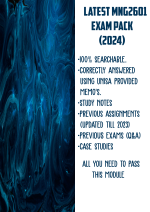
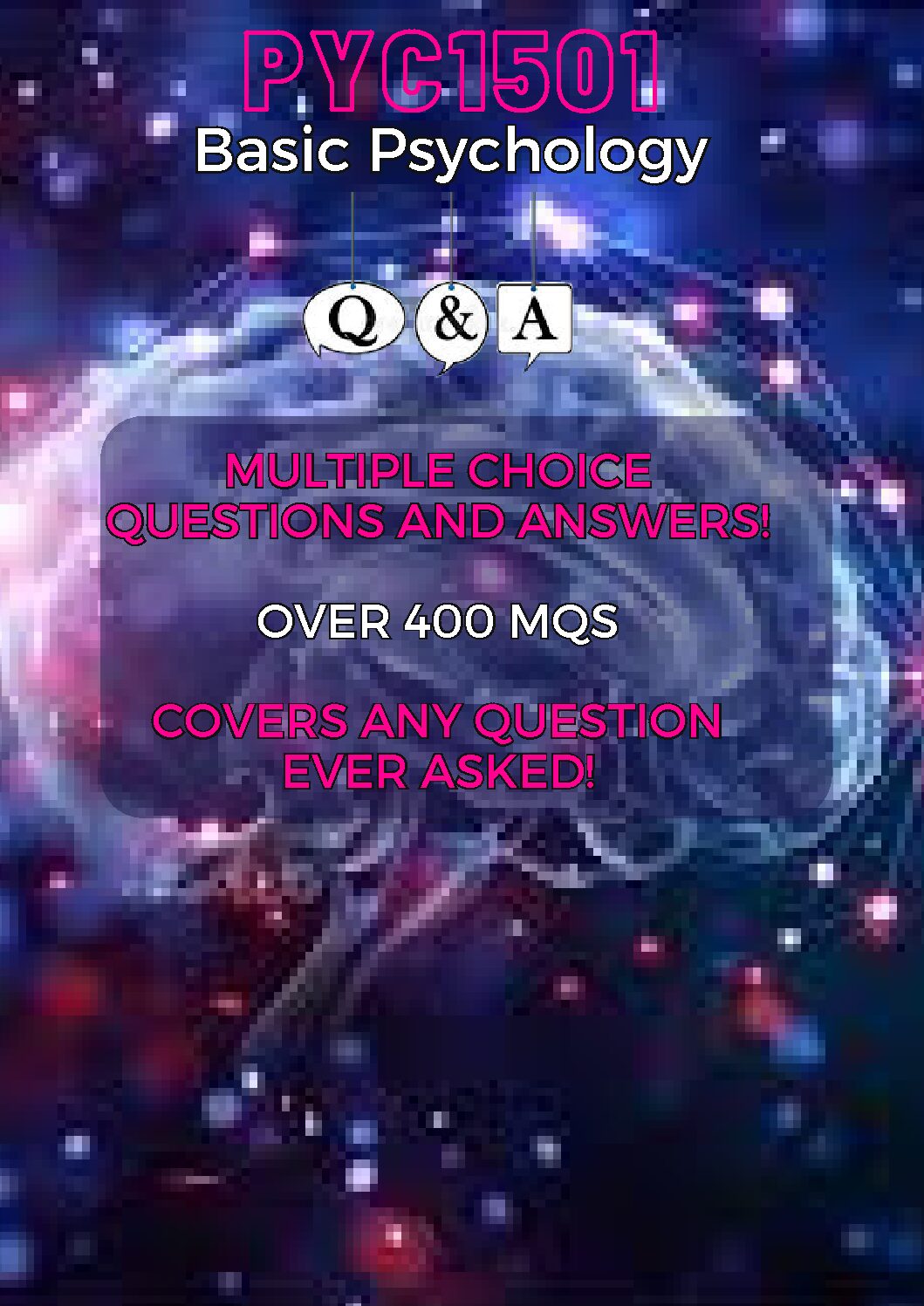













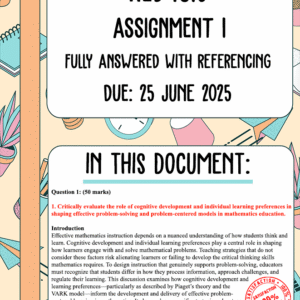


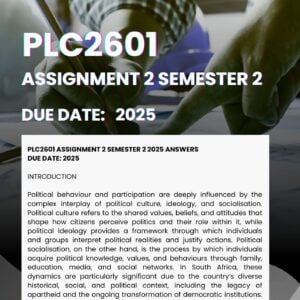

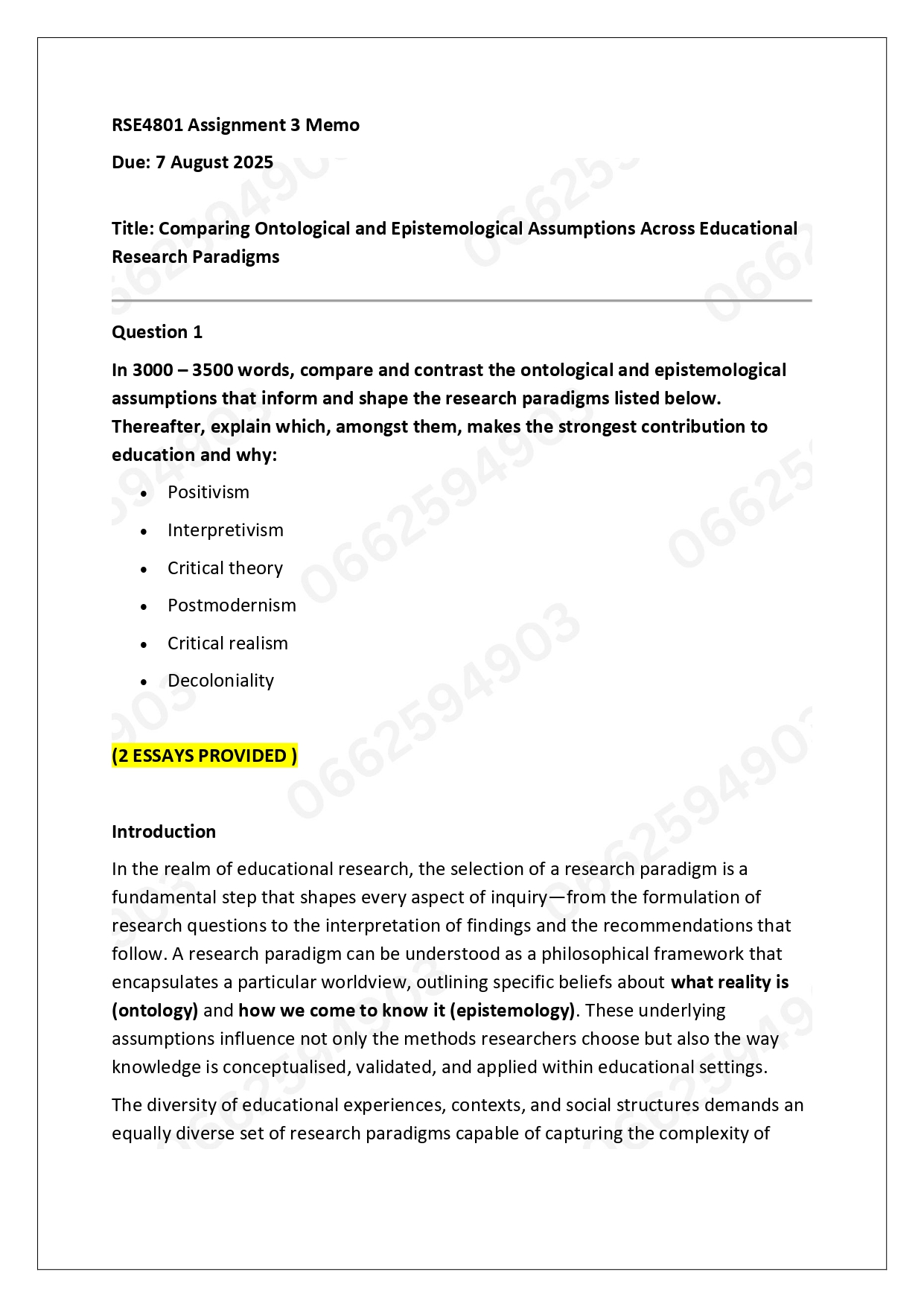

![LRM3701 Assignment2 Semester 2 2024 Answers [Due Date 16 September 2024]](https://studypass.co.za/wp-content/uploads/2024/08/LRM3701-300x300.jpg)


![HMEMS80 Assignment 1 Semester 2 2024 Complete Answers [Due Date 2 September 2024]](https://studypass.co.za/wp-content/uploads/2024/08/HMEMS80-300x300.jpg)
![TPF3703 ASSIGNMENT 3 PORTFOLIO ANSWERS [DUE DATE: 29 AUGUST 2025]](https://studypass.co.za/wp-content/uploads/2025/02/Cream-and-Green-Handdrawn-Illustrative-Project-Proposal-1-1-300x300.jpg)



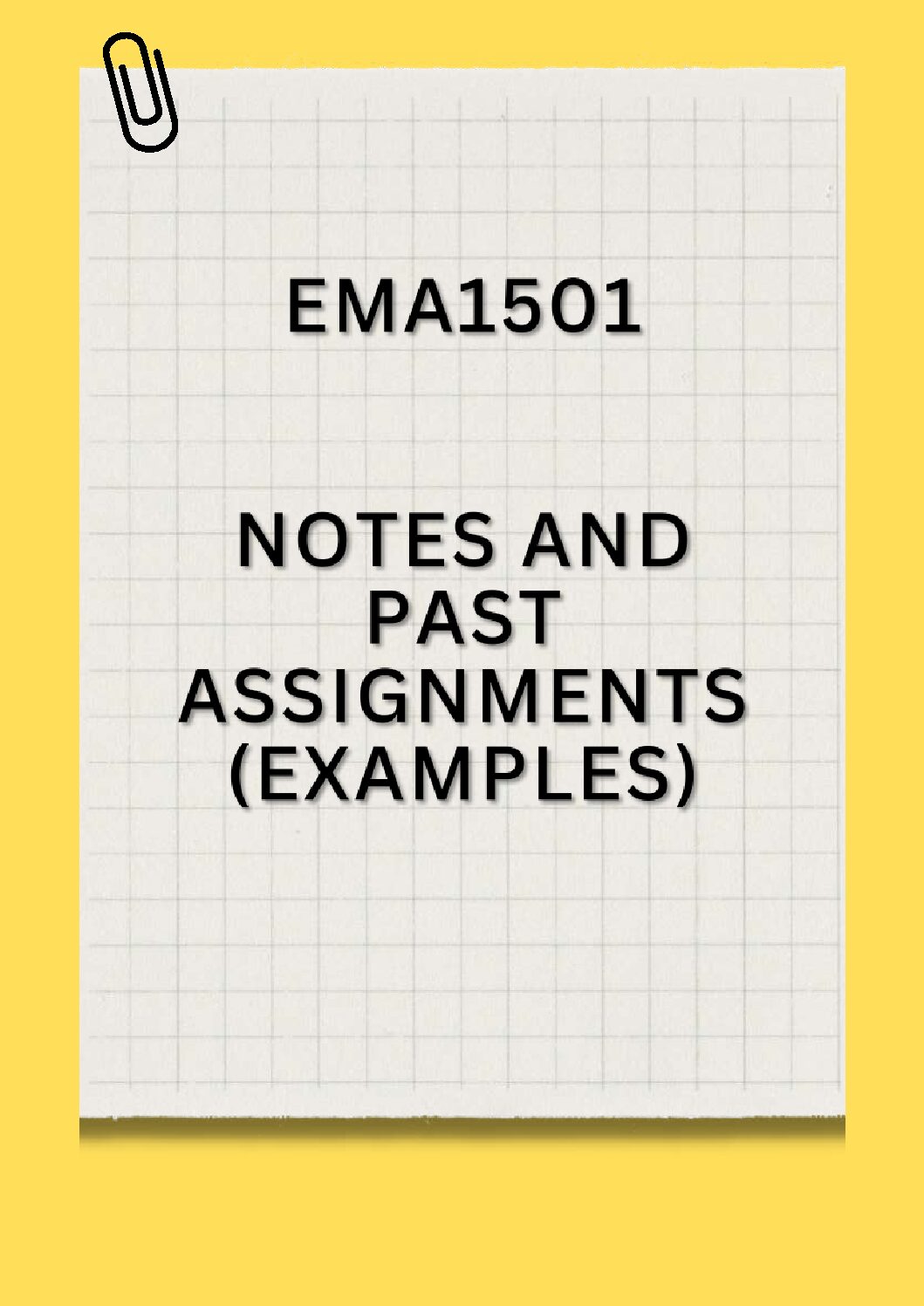
Reviews
There are no reviews yet.